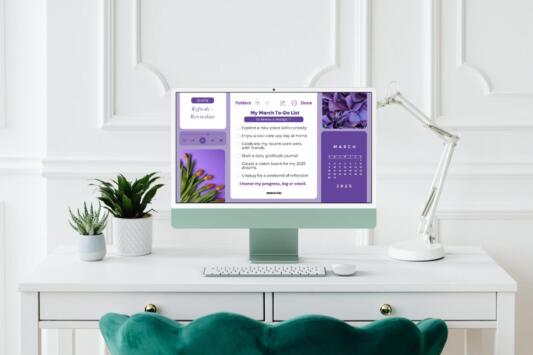Using The Enneagram To Improve Your Leadership
Achieving Goals, Confidence, Leadership Coaching

What is the Enneagram?
People often consider the Enneagram to be a personality test, but it’s so much more than that. The Enneagram is a powerful tool for self-awareness and leadership development, offering a unique lens through which to view the world. It describes nine distinct personality types, each with its own central motivations, habitual patterns, blind spots, and potential problems.
The Enneagram offers a high degree of insight into what effective communication means for each person, how they themselves can be a great leader in their own way, as well as their habitual patterns, offering a healthy way to make changes and shifts.
As you can imagine this is a powerful tool for your leadership development. That’s because the Enneagram is a tool for not only learning more about yourself, but also increasing your self-awareness and inspiring growth. This insight allows you to become aware of your patterns, break habits, see your blind spots, know your triggers, and become more of who you want to be.
The Enneagram describes nine ways of seeing the world
What sets the Enneagram apart from other personality tests is its emphasis on the present moment and the big picture. While other tests may focus on our natural tendencies or risk assessment, the Enneagram describes nine ways of seeing the world, each with its unique set of personality traits and leadership styles.
Unlike traditional personality tests that may categorize individuals into a specific personality type, the Enneagram recognizes that we all have aspects of each type within us, with one type being dominant.
The Enneagram is also unique in its ability to address conflict avoidance and recognize the different ways in which individuals process and communicate information. By providing a key tool for self-awareness and personal development, the Enneagram empowers individuals to recognize and address their weaknesses while also tapping into their strengths and natural leaders. Ultimately, the Enneagram provides a more comprehensive and holistic understanding of people, leadership styles, and effective communication, making it an invaluable tool for leaders seeking to take their careers forward and build their skills.
Which Enneagram type makes the best leaders?
It’s important to note that each Enneagram type has unique strengths that can be beneficial for leadership, and there is no one “best” type.
For example, Enneagram Type Ones are often known for their attention to detail and a strong sense of responsibility, which can make them effective leaders in fields that require precision and accountability. Meanwhile, Enneagram Type Twos are often skilled at building strong relationships and creating a sense of community, which can make them effective leaders in positions that require collaboration and teamwork. Similarly, Enneagram Type Threes are often goal-oriented and driven, making them effective leaders in fast-paced, results-driven environments. Each type has its strengths and weaknesses, and the key is to recognize these qualities and develop them in a way that supports your leadership style and goals.
How can you use it to enhance your leadership style?
The benefits of the Enneagram for leaders are primarily two-fold.
Enhance your own behavior
The Enneagram types offer insights into our leadership styles, decision-making processes, and natural tendencies. By recognizing our strengths and weaknesses, we can develop a healthy way of being a great leader, while also understanding how we tend to react in high-stress situations or worst-case scenarios.
As a leader, it’s important to know yourself and how you show up. It’s good to know how you come across, what your blind spots are, and how you make those around you feel. That way if something isn’t beneficial (or even causing problems at work), you can change it.
Support your team members better
It’s also important to bring out the best in your team. People are unique! What works for one person won’t work for another. When you know other’s Enneagram type, you know how to motivate them, how to best communicate with them, what could trigger them, and what they may be missing.
The Enneagram provides a way to understand others, including team members, colleagues, and even our loved ones. By recognizing their tendencies, we can communicate with them more effectively, provide support, and inspire them to reach their full potential.
Overall, the Enneagram offers a high degree of focus and insight into ourselves and the world around us, enabling us to lead with compassion and enthusiasm while also recognizing and addressing our challenges and conflicts.
So, what are the 9 Enneagram types?
Here is a very brief overview of the nine types outlined in the Enneagram. However, we go into much more detail for each of these in the following posts in this series.
- The Perfectionist – The Perfectionist has a strong desire for order, rules, and structure, and often holds themselves and others to very high standards. They are driven by a need to do things “the right way,” and can be critical of themselves and others when they fall short.
- The Helper – The Helper is motivated by a desire to be needed and loved, and often goes out of their way to support others. They are empathetic and intuitive, and can be prone to neglecting their own needs in order to care for others.
- The Achiever – The Achiever is focused on success and accomplishment, and strives to be the best at what they do. They are often highly ambitious and competitive, and may struggle with feeling like they are only as valuable as their achievements.
- The Individualist – The Individualist is driven by a need to express their unique identity and be seen as special or different. They can be highly creative and artistic, but may also struggle with feelings of melancholy and a sense of not fitting in.
- The Investigator – The Investigator is driven by a need to understand and analyze the world around them. They tend to be highly intellectual and independent, but may struggle with social situations and emotional expression.
- The Loyalist – The Loyalist is motivated by a need for security and stability, and often looks to authority figures or social structures for guidance. They can be highly loyal and committed, but may also struggle with anxiety and a tendency to second-guess themselves.
- The Enthusiast – The Enthusiast is driven by a need for adventure, novelty, and excitement. They tend to have high energy and be optimistic, but may struggle with following through on commitments or dealing with difficult emotions.
- The Challenger – The Challenger is motivated by a need for power and control, and often takes charge of situations and people around them. They can be highly assertive and protective, but may also struggle with vulnerability and a fear of being controlled by others.
- The Peacemaker – The Peacemaker is driven by a need for harmony and avoiding conflict. They tend to be easygoing and adaptable, but may also struggle with indecisiveness and a tendency to avoid their own needs and desires.
How you can find and use your Enneagram type to improve your leadership
Find out what Enneagram type you are through this free tool. For a more detailed and accurate analysis, Coach Brooke recommends this site.
Once you know which of the nine types is yours, check out the following posts to dive even deeper!
Check out our blogs on the specific Enneagram types. In them, you will read about what drives the specific Enneagram types, their conflict styles, blind spots, triggers, defense mechanisms, and what to do if this is your type or your subordinates’ type.
Work with a Leadership Coach
Working with a leadership coach can be an excellent way to deepen your understanding of how your Enneagram type may be impacting how you’re showing up at work and enhance your leadership skills.
A coach can provide personalized guidance, support, and accountability as you work to apply the insights you gain from the Enneagram to your leadership style. A coach can help you identify patterns that may be holding you back and create strategies for overcoming these challenges. They can also help you set goals, create action plans, and track your progress toward becoming a more effective leader.
For example, a leadership coach can help individuals who identify as Enneagram type 9 by guiding them to explore their core motivations of seeking harmony, as well as encouraging them to assert themselves and take action. The coach may also help the individual identify any patterns of being conflict-avoidant or having difficulty in decision-making, and work with them to build strategies to address these challenges. Additionally, the coach may help the individual cultivate their ability to prioritize their own needs and goals, rather than constantly deferring to others. Ultimately, the goal is to help the individual grow into a more confident, assertive, and effective leader.
By working with a coach, you can accelerate your growth, gain valuable feedback, and achieve your leadership potential more quickly and with greater ease. You can get started today by booking a free consultation here.


